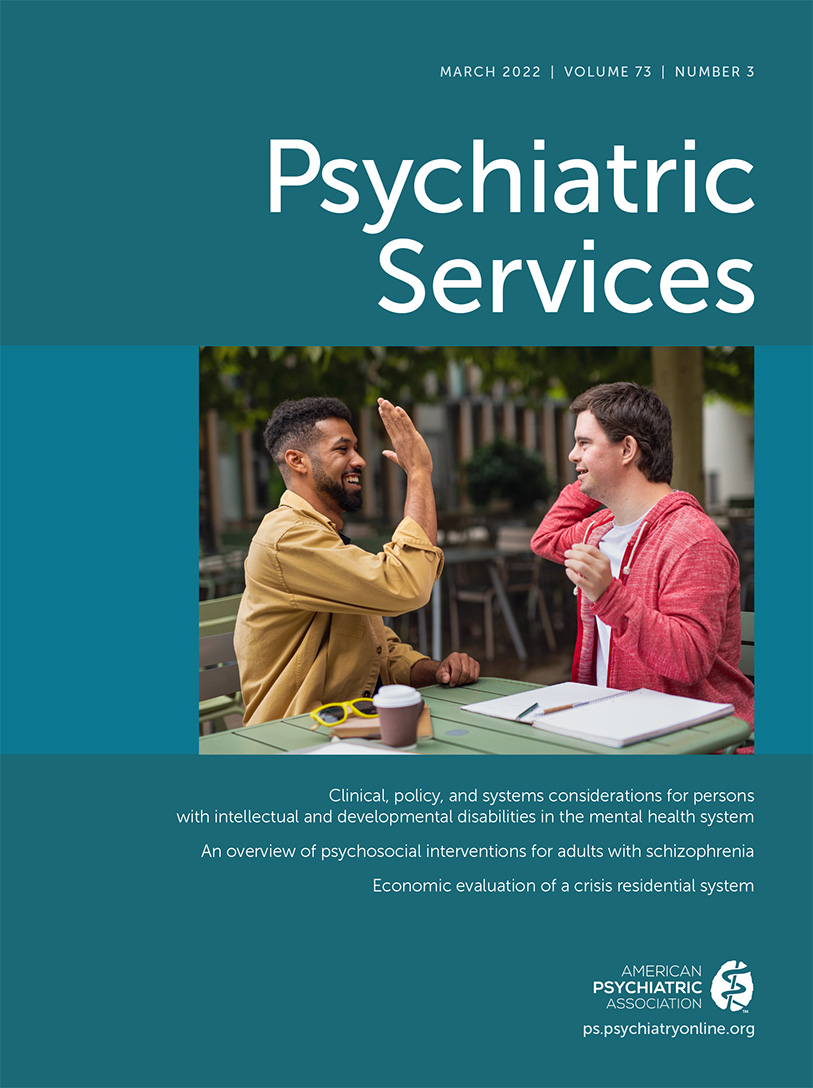Persons With Intellectual and Developmental Disabilities in the Mental Health System: Part 1. Clinical Considerations
Abstract
Individuals with intellectual and developmental disabilities (IDD) are at high risk of co-occurring mental health conditions, including major depressive disorder, bipolar disorder, anxiety disorders, psychotic illnesses, impulse control disorders, and others. Because of symptoms associated with these illnesses and with the disabilities themselves, these individuals are often served in a mental health service system framework. However, treatment for them in these settings has typically not been sufficiently nimble, knowledgeable, or adept. Most mental health professionals receive little training about the needs of this population, and system structures typically bifurcate care, when, in reality, conditions can be complex and overlapping. In this first of two articles on care for persons with IDD in the mental health system, the authors provide a clinical overview of these neurodevelopmental disorders and of mental health and other conditions that co-occur with IDD. Considerations and challenges for treating this population in the mental health system include early recognition of mental health conditions, which often requires caregiver and family input, as well as information from a variety of additional collateral sources; the importance of trauma-informed and person-centered care; the promotion of self-determination through use of decision supports; use of approaches such as applied behavior analysis to develop a frame to address challenging behaviors; and the need to properly assess and provide thoughtful pharmacologic intervention when appropriate. The ability of individuals with IDD to thrive in a wide range of community integration opportunities depends on many factors, and clinicians must understand and use the available approaches for treating them.



